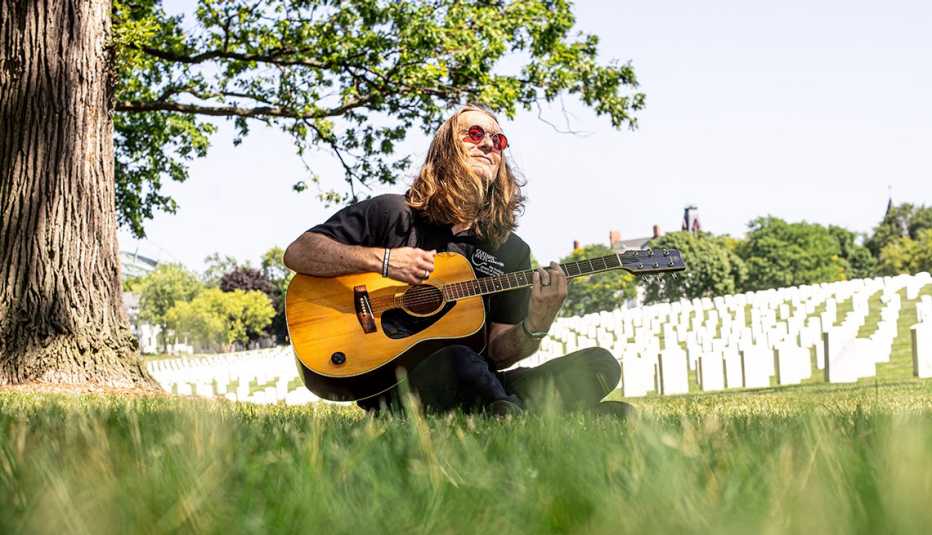AARP Hearing Center


We’ve all heard a classic song that stirs up something inside us. This can go much deeper than simply making us feel good. The VA reports that music therapy reduces depression symptoms and improves quality of life.
Jennifer Prescott, who runs Blue Water Homecare and Hospice in Austin, Texas, said: “Music therapy has a remarkable influence on seniors and veterans. As a hospice nurse, I can attest to the profound importance of music in the context of healing, especially in end-of-life care,” she said.
She pointed to one veteran patient with Alzheimer’s who hadn’t spoken in six months. She and the patient’s family tried to use music to trigger memories.
“Research shows that regions of the brain such as the cerebellum involved in music memory and processing are less affected by Alzheimer's or dementia until late in their disease course. Therefore, people can retain the ability to dance and sing to music long after their ability to talk is lost,” she said.
“Immediately after the patient heard the live music you could see her hands starting to move and her facial expressions changing. She closed her eyes and began to sing Bing Crosby's ‘Swing on a Star.’”
Prescott said sessions are typically an hour and involve both listening to and playing music. “We meet with families ahead of time and determine the plan for music therapy including the music that the person wants to hear during their session.”
Guitars for Vets, a nonprofit that teaches veterans to play music, researched the impact. They found a 21 percent reduction in Post Traumatic Stress Disorder symptoms, a 27 percent reduction in depression symptoms, and a 37 percent improvement in quality of life.
The group was founded in 2007 when Dan Van Buskirk, a Vietnam veteran, went to Patrick Nettesheim for guitar lessons.
Before long, the lost stories from Vietnam were pouring out of him, the music allowing previously locked-down memories to find the light. “It was very, very evident that Dan struggled with post-traumatic stress,” Nettesheim said. “As we progressed through these lessons, he shared what it was like to serve in Vietnam.”
The pair founded Guitars for Vets, which has now provided nearly 6,000 new guitars and 60,000 lessons to veterans. More than 130 chapters have been established and there are 800 volunteers.
Pete Ruzicka, president of Guitars for Vets, who served in the Gulf War, still has nightmares from dealing with mass graves of Kurds murdered by Saddam Hussein. “I die in my dreams,” he said.
Music, he said, had helped him deal with his demons, but he warned that it should not be viewed as a panacea. “You could be by yourself and be depressed playing music too,” he said. “Be careful on what selection of music you pick.”
One skeptical veteran was agitated, even hostile, when he arrived for a session with Ruzicka. “He finally strummed the chord. It was perfect. He hit it again and let it ring.”
The veteran stared to shake. “I’m going to tell you right now what I think about you and your program,” he said, looking like he was about to unload. Then, tears started to well up in his eyes. “This is the first time I’ve felt peace,” he said.

































































More From AARP
Gary Sinise Salutes America’s Pearl Harbor Heroes
Only a handful of survivors of that day of infamy are still with usWounded in Korea, Praised by MacArthur and Still Going Strong
Back in 1950, serving in a segregated unit was ‘just status quo’10 Holiday Shopping Tips to Get the Most from Veteran Discounts
The deals are out there, but you need to be smart to land the best onesHe Lost a Leg in Combat, But It Only Spurred Him On
Brad Halling paved the way for other amputees to keep serving in the U.S. militaryRecommended for You